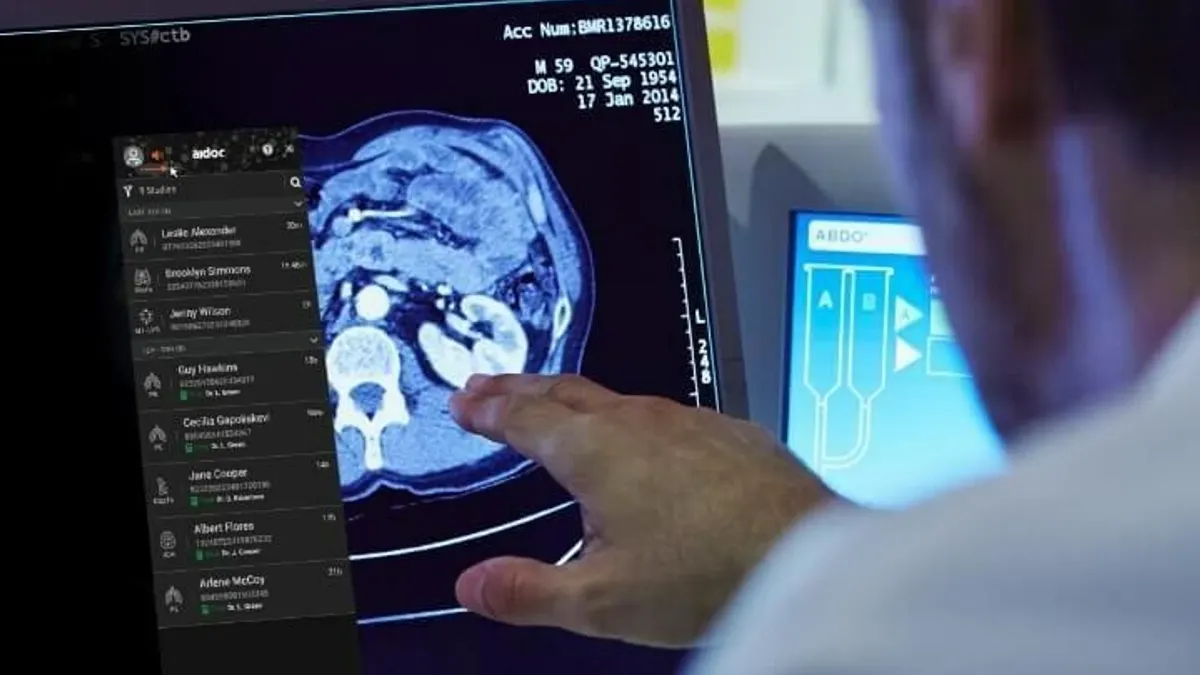CMS issued final rule intended to get breakthrough medical devices to Medicare patients faster, delivering a boost for companies including Abbott, Boston Scientific, Johnson & Johnson and Medtronic.
The new policy gives developers of FDA-designated breakthrough potential products to sell and be reimbursed for new devices for the 60 million Medicare beneficiaries on the day of market approval, something the industry has been pushing for years. Some critics though, including Sloan Kettering's Peter Bach, called it a gift to industry that could harm patient care and add costs.
CMS' proposed rule on the Medicare Coverage of Innovative Technology initiative last year sought to eliminate the lag between FDA approval and Medicare coverage for breakthrough-designated devices. Currently, companies, having gone through the FDA approval process, need to provide further evidence to secure local or national coverage determinations to get products to Medicare beneficiaries. The process slows or, if the company lacks the required clinical evidence, stops access to devices.
Under the new scheme, developers of breakthrough devices that voluntarily opt in will automatically receive four years of Medicare coverage. CMS expects manufacturers to use the automatic coverage period to generate the evidence needed to seek LCDs or NCDs as the four-year window draws to a close.
The final rule retains those aspects of the proposal CMS put forward last year and drew praise from industry and Wall Street alike. AdvaMed CEO Scott Whitaker called it "good government" and "good common sense" to recognize that CMS can move quickly to grant access to devices approved by FDA.
Analysts at Cowen called the regulation "broadly positive" for medical device manufacturers and their peers at J.P. Morgan said the policy is potentially "a significant commercial tailwind" as it bypasses a "lengthy step" in launching breakthrough devices.
J.P. Morgan analysts identified almost 20 breakthrough devices made by publicly traded companies they cover that could benefit from MCIT. The list includes Abbott and Medtronic's fully implantable left ventricular assist products, Boston Scientific's single-use duodenoscope and J&J's robot-enabled microwave ablation system.
AdvaMed gave a positive response to the the proposed rule last year, stating it has long been one of its top priorities. Yet, the more than 300 comments submitted in response to the proposed rule also featured requests for changes to the policy. CMS has acted on some of the calls for revisions.
Notable changes include flexibility on the MCIT coverage start date. Originally, CMS planned to initiate MCIT coverage on the day a device won FDA approval. However, while the proposal received some support, other commenters asked CMS to allow manufacturers to pick their start date, as not all medical devices are ready for commercialization on the day of FDA approval. The commentators wanted "time to be fully prepared for device dissemination with set coding, payment, and evidence development," CMS said.
CMS has granted the request for flexible start dates. Under the final rule, manufacturers need to include the start date in the email they send to CMS indicating they want to opt in to the program. The countdown to the end of the four-year MCIT coverage period will still start on the day of FDA approval, though. If a manufacturer waits one year after approval to request MCIT coverage, its device will only be part of the program for three years.
Manufacturers have two years to opt in to the program, reflecting their requests for flexibility on the start date. However, as opting in at the end of the period will limit MCIT coverage to two years, CMS thinks "it is counterintuitive" to wait long. Manufacturers that opt in early will benefit from a longer period of automatic coverage and have more time to generate evidence to support local or national coverage decisions.
CMS has also tweaked its position on the use of commercial insurer policies to inform its coverage decisions. Some commenters said making commercial insurer policies the sole determinant of CMS' coverage decisions is a "substantial policy change" and therefore requires more stakeholder input. The feedback on CMS' proposed use of commercial insurer policies, which was criticized as vague by some commenters, led the agency to agree to hold a consultation on the topic.
Within 12 months of the effective date of the final rule, CMS will release a draft methodology on the use of commercial insurer policies for public consultation. CMS wants regulatory language that gives it "clear authority to review the majority of commercial insurers" in some circumstances. If Medicare coverage is different than most commercial insurers, CMS will explain the deviation in the decision.
CMS plans to make use of commercial policies when there is insufficient evidence to show a device is "reasonable and necessary." Medicare coverage is limited to items and services deemed by CMS to be "reasonable and necessary," but exactly what that means has never been codified in regulation. CMS proposed codifying the term in regulation in the rule published last year.
The proposal drew criticism, with the National Health Council urging CMS to withdraw the section as it "could potentially have significant impacts on access for patients to devices." CMS resisted the calls for the term to stay uncodified, stating "it is appropriate to establish the reasonable and necessary criteria in regulations, and will not adopt the commenters' suggestion."



















